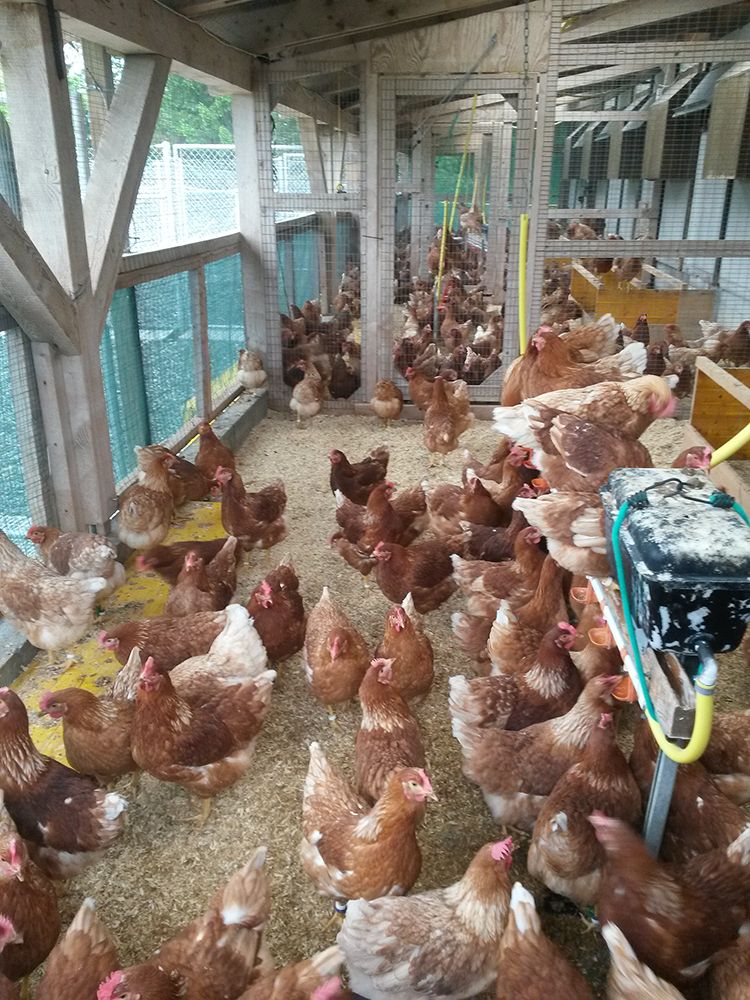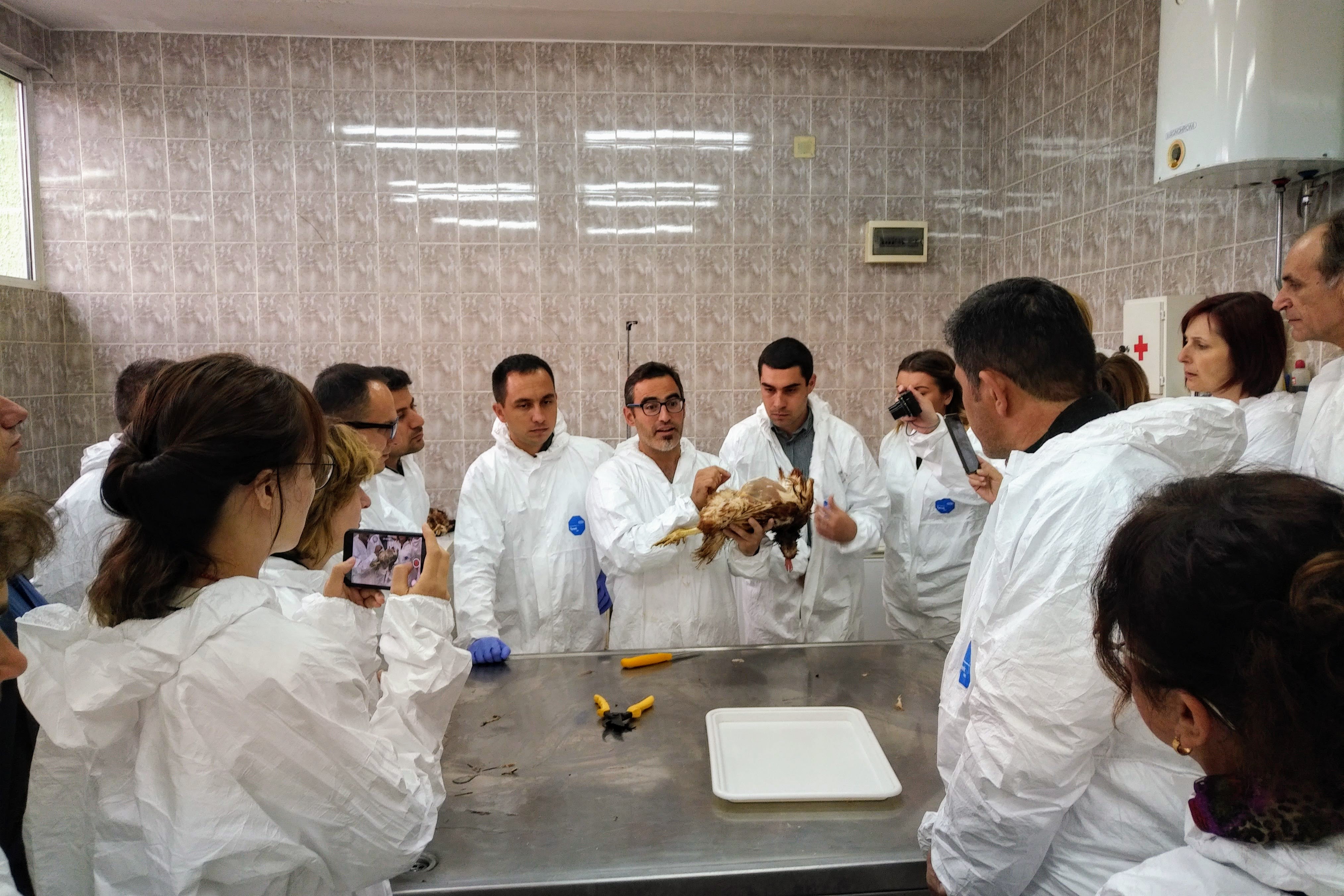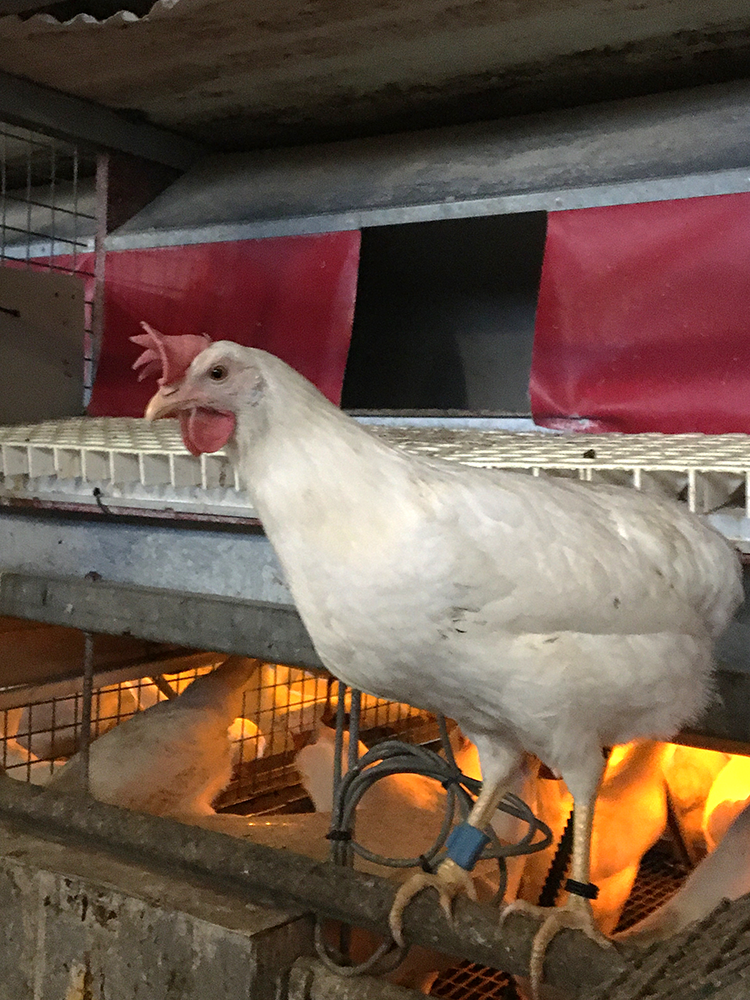Major funding award to enhance breeding of laying hens
Open Philanthropy, a foundation based in California, USA, will support animal welfare scientist Michael J Toscano of the University of Bern and industrial collaborators. The funding of $2.7 million will be used to promote cage-free housing for laying hens and improve their welfare and health through new breeding programs.
Open Philanthropy supports initiatives to improve animal welfare with a focus on projects likely to cause large global changes and has a particular interest in promoting the transition away from cage housing systems for laying hens. The HenTrack project by Michael Toscano of the University of Bern's Veterinary Public Health Institute (VPHI) and the leading suppliers of laying hen genetics, Lohmann Breeders in Germany and Hendrix Genetics in the Netherlands, aims to do just that: it uses the latest findings from behavioral research on hens kept in cage-free housing with and without outdoor areas to incorporate them into breeding programs for laying hens. Now, Open Philanthropy is supporting the HenTrack project with $2.7 million.
The project will begin in 2023, last five years, and include four of the world's most common high-performance hybrids, which lay particularly high numbers of eggs. "In the project, we want to find out which traits relate to the welfare and health of the animals in order to breed more robust and resistant chickens for cage-free housing while maintaining high performance in Switzerland and worldwide," Toscano says.
The project is being carried out in an experimental barn used by the Center for Proper Housing of Poultry and Rabbits (ZTHZ) in Zollikofen, Switzerland. The ZTHZ is a joint research center of the Federal Food Safety and Veterinary Office (FSVO) and the Veterinary Public Health Institute (VPHI) of the University of Bern. The focus of the research center is on projects to improve the welfare of farm poultry and rabbits. The experimental barn is located at the Aviforum, the competence center of the Swiss poultry industry in the areas of education, research and services. This cooperation and support for research has been in place since 2011. "The fact that the joint HenTrack project is now being funded by Open Philanthropy is tantamount to an international award," says David Spreng, Dean of the Vetsuisse Faculty in Bern. "I am very happy about this big funding award. It underlines the high quality of research at the Bern Vetsuisse Faculty on animal health and welfare."
Healthier chickens for the world
Switzerland is a world leader in animal welfare standards: for example, it was the first country to ban battery cages in 1993 and transition entirely to cage-free housing. Although chicken welfare remains a national priority, problems such as bone fractures persist. These problems are being studied at ZTHZ to find solutions, such as changes in the interior design of barns. "However, the benefits are ultimately limited by factors such as the international market, which also supplies Switzerland with productive hybrids," Toscano says. "To complicate matters, genetic selection is done almost exclusively abroad with caged hens, so many of the problems that arise cannot be targeted."
The HenTrack project will monitor the behavior, health and welfare of individual laying hens during the laying period in the Aviforum's state-of-the-art, large-scale, cage-free research facilities. Combining behavioral patterns with indicators of animal health and welfare will allow new traits (phenotypes) to be incorporated into the breeding programs of industrial partners. This will help breed healthier and more robust animals for cage-free housing, while maintaining their productivity.
For animal welfare and consumers
"The breeding of more robust and resilient hens is indispensable for a sustainable improvement of the wellbeing of laying hens. This demonstrates the outstanding role that the ZTHZ plays for improving animal welfare in Switzerland, as well as internationally," says Hans Wyss, Director of the Federal Food Safety and Veterinary Office (FSVO).
Daniel Würgler, president of GalloSuisse, the association of Swiss egg producers and member of the advisory board of HenTrack, adds: "HenTrack will deliver many benefits for the laying hens and producers of Switzerland. Our organization seeks to uphold the highest standards for hens and we are happy to see our dedication will benefit the consumers of Switzerland as well as those around the globe”.
State-of-the-art tracking methods
ZTHZ focuses on behavioral research to develop a better understanding of poultry welfare, using novel tracking methods. These include a measurement system using radio frequency and mini-receivers worn on the chickens' legs. This allows allows assessment of relevant traits without disturbing the hens, a major advantage over current breeding programs. With the help of such tracking methods, it has been possible to show consistent behavioral patterns of the animals, such as how they use the indoor and outdoor areas of the barn. These methods will also be used in HenTrack. Since the environment in the Aviforum corresponds to a real commercial large-scale barn, the data collected is very practical, which makes it attractive for breeding companies.
Research for animal welfare practiceThe experimental barn of the Center for Proper Housing of Poultry and Rabbits (ZTHZ) located in Zollikofen, Switzerland at the Aviforum creates optimal conditions for the development of new approaches and methods to improve animal welfare. Here, researchers can study under controlled conditions, for example, what type of nest laying hens prefer for egg laying or how |
2022/07/04




